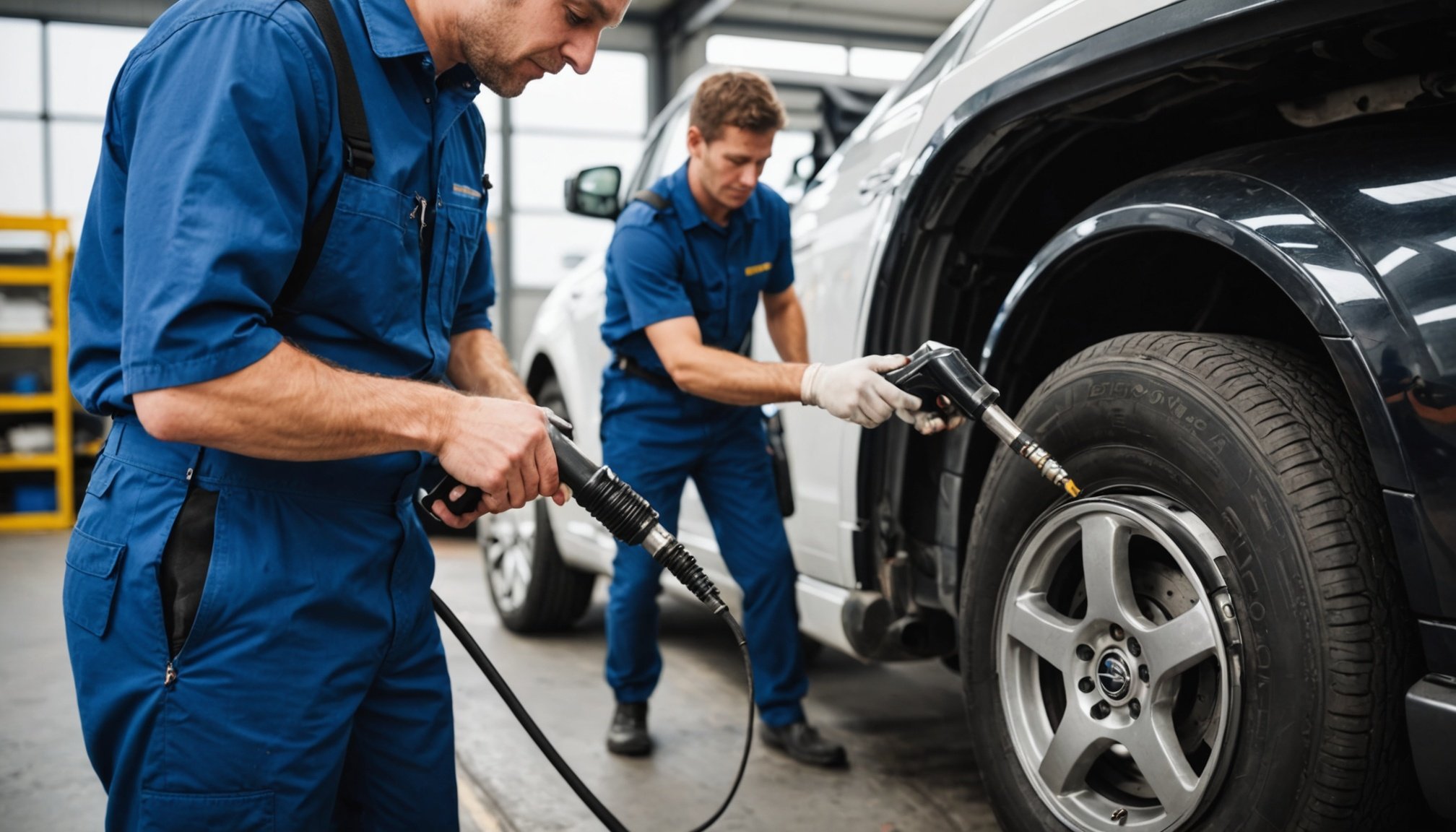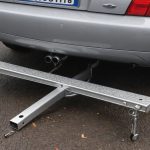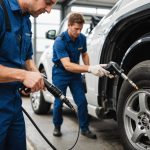Overview of Euro 7 Emissions Regulations
The Euro 7 regulations signify a new chapter in the evolution of emissions standards across Europe. These standards are crucial for achieving environmental compliance, aiming to drastically reduce pollutants from vehicles. Historically, the Euro emissions standards have been pivotal in controlling emissions output, starting with Euro 1 in 1992 and gradually tightening regulations over the years. Each iteration has sought to curb the detrimental environmental and health impacts caused by vehicle emissions.
A significant shift in the Euro 7 regulations is the broadening scope compared to Euro 6. Notably, Euro 7 introduces stricter limits on NOx and particulate matter emissions, requiring advanced technology and innovation from manufacturers. These updates emphasize the role of extended on-road testing, ensuring real-world compliance and not just laboratory conditions. Such changes are vital, demanding both vehicle owners and manufacturers adapt strategically for continuous environmental compliance.
Also to discover : Crucial advice for keeping your vehicle compliant with uk regulations during rural commutes
Compliance with these evolving standards ensures vehicles remain lawful, cost-effective, and more environmentally friendly. It demands diligent effort from vehicle owners to maintain vehicles within these limits, and manufacturers must innovate promptly to meet these stringent requirements, underscoring the critical balance between transportation needs and environmental stewardship. The transformation aims to benefit the environment, reduce health risks, and foster sustainable automotive development.
Checklist for Vehicle Modifications
As Euro 7 regulations tighten emissions standards, vehicle owners must undertake specific modifications to ensure compliance. This compliance checklist varies across vehicle types, including petrol, diesel, and hybrid engines.
Also read : Transform your car”s infotainment: a comprehensive guide to safe upgrades compliant with uk road regulations
Essential Modifications Needed for Compliance
- Emission Control Systems: Upgrading catalytic converters or diesel particulate filters is essential to meet reduced NOx and particulate emission limits.
- Software Updates: Vehicles may require updated software to manage emission control systems effectively.
- Regular Maintenance: Ensures engines operate within efficiency parameters set by Euro 7 standards.
Considerations for Different Vehicle Types
- Petrol Vehicles: Primarily require updates to catalytic converters and on-board diagnostics.
- Diesel Vehicles: Focus on advancing particulate filtration systems and reducing NOx emissions.
- Hybrids: Require thorough evaluation of both internal combustion engines and battery performance for compliance.
How to Find Reliable Service Providers
Entrusting your vehicle to credible service providers is crucial for proper modifications. Look for workshops with certifications in emissions testing and a proven track record in vehicle upgrades. Additionally, explore recommendations from automotive associations or networks for verified service providers.
Ensuring your vehicle meets Euro 7 standards not only aligns with legislative requirements but also contributes to sustainable practices and long-term environmental health.
Cost Implications of Compliance
Navigating the financial terrain of meeting Euro 7 standards is crucial for vehicle owners. The compliance costs associated with vehicle upgrades vary but generally include several factors. Initial investments may involve upgrading emission control systems and software updates. These expenditures can be significant, depending on the vehicle type and the extent of required modifications tailored to the Euro 7 regulations.
However, in terms of potential savings, ensuring compliance might reduce long-term maintenance expenses. This stems from improved vehicle performance and, often, better fuel efficiency. Over time, these benefits can outweigh the initial capital outlay, making compliance a financially sensible strategy for many vehicle owners.
Vehicle owners should explore financial assistance options or incentives that local governments or manufacturers might offer. Such programs can considerably alleviate the immediate financial burden of compliance. Notably, incentives can take the form of direct subsidies, tax reductions, or trade-in programs for non-compliant vehicles.
Understanding these financial dynamics helps vehicle owners make calculated decisions about upgrading their vehicles. Balancing immediate expenditure with prospective savings ensures that complying with Euro 7 standards becomes a sustainable choice rather than merely a mandatory requirement.
Timelines for Compliance
Understanding the compliance timelines for Euro 7 emissions regulations is central to remaining within legal requirements. The initial implementation of Euro 7 is set to begin in 2025, with new vehicles required to meet these standards promptly. For existing vehicles, a transition period allows some leeway, giving current owners until 2027 to ensure their vehicles align with Euro 7 criteria.
The impact of these timelines varies across vehicle categories. New registrations must adhere to the regulations from the outset, demanding immediate compliance by manufacturers and buyers. In contrast, owners of existing vehicles have a bit more time to adapt. However, phased compliance highlights the need for gradual yet consistent updates to older vehicles to meet the enforced standards.
This staggered approach provides a balanced period for adjustments, though it necessitates awareness and proactive measures from vehicle owners. Monitoring these deadlines can prevent potential legal or financial repercussions. Owners are encouraged to plan upgrades early, leveraging this timeline to strategically meet Euro 7 implementation mandates, thereby ensuring environmental compliance and safeguarding their investment against policy shifts in European automotive regulations.
Potential Penalties for Non-Compliance
Failing to meet Euro 7 regulations carries significant risks. Non-compliance penalties vary by country, but fines and operational restrictions are common consequences. Authorities can impose stringent measures on vehicles breaching emissions standards, affecting both usage and ownership.
Legal consequences can extend beyond financial penalties. For instance, vehicle owners may face registration bans, significantly limiting the resale value of non-compliant vehicles. This situation impacts owners financially and diminishes the desire for outdated vehicles, further depreciating their market value.
Enforcement actions highlight the importance of adhering to environmental compliance. Case studies reveal instances where non-compliant vehicles endure prescriptive actions, such as in Germany, where violation penalties saw increased state vigilance and action against offenders. Such enforcement ensures uniform adherence and deters regulation neglect.
Understanding penalties can motivate compliance. Awareness of the consequences encourages early upgrades and adherence to emissions standards, promoting long-term benefits for owners and the environment. This foresight aids owners in navigating legislation more effectively, safeguarding investments and contributing to a cleaner future.
Resources for Further Guidance
Navigating the complexities of Euro 7 regulations can be challenging. To support vehicle owners and manufacturers, it’s essential to access authoritative sources and compliance resources. The UK government provides official guidance documents detailing Euro 7 requirements. These resources can be instrumental in understanding the specifics of compliance and the steps needed to meet new emissions standards.
For in-depth assistance, organizations and industry bodies such as automotive associations offer expert insights and updates on regulatory changes. Their technical expertise can prove invaluable in interpreting the nuances of Euro 7 regulations, ensuring informed decisions for vehicle maintenance and upgrades.
Online forums also serve as a vibrant platform for discussion. Participation in these communities allows vehicle owners to share experiences and strategies for maintaining environmental compliance. These interactions foster a collaborative atmosphere where collective wisdom aids in tackling compliance challenges effectively.
To stay current, regularly consult government websites and reputable industry platforms that provide the latest updates on emissions regulations. This proactive approach guarantees that vehicle owners remain compliant and aware of future developments, solidifying their commitment to sustainable and responsible vehicle ownership.
Expert Tips for Vehicle Owners
Navigating the intricacies of Euro 7 regulations can be daunting. Seeking expert advice proves invaluable. Consistently following best vehicle maintenance practices ensures compliance and enhances sustainability. This involves regularly updating emission control systems and performing engine tune-ups. Such proactive steps help mitigate potential non-compliance penalties.
Routine vehicle inspections assist in identifying and rectifying areas falling short of Euro 7 standards. Scheduling regular check-ups with certified service providers can prevent future compliance issues. These inspections often reveal needed software updates or mechanical adjustments. Undertaking these measures early aligns with the broader goal of environmental compliance and extends vehicle longevity.
To remain informed, consider engaging with authoritative sources and industry forums. These platforms provide real-time updates on regulatory shifts, enabling well-informed decisions. Their collaborative nature encourages sharing of experiences and recommendations among vehicle owners. Leveraging these compliance resources fosters a supportive community invested in sustainable transportation.
By adhering to expert advice and maintaining an awareness of evolving standards, vehicle owners safeguard their assets and contribution to a cleaner environment. Staying proactive in strategy ensures alignment with Euro 7 objectives and supports responsible vehicle ownership.






